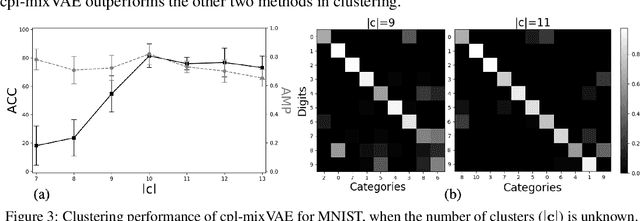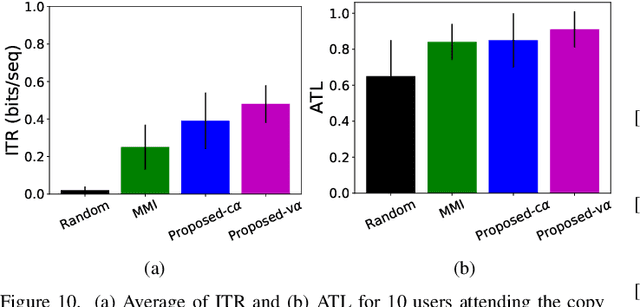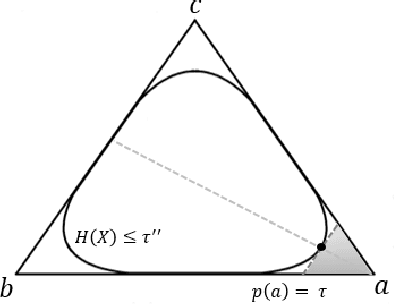Yeganeh M. Marghi
Joint Learning of Discrete and Continuous Variability with Coupled Autoencoding Agents
Jul 20, 2020



Abstract:Jointly identifying discrete and continuous factors of variability can help unravel complex phenomena. In neuroscience, a high-priority instance of this problem is the analysis of neuronal identity. Here, we study this problem in a variational framework by utilizing interacting autoencoding agents, designed to function in the absence of prior distribution over the discrete variable and reach collective decisions. We provide theoretical justification for our method and demonstrate improvements in terms of interpretability, stability, and accuracy over comparable approaches with experimental results on two benchmark datasets and a recent dataset of gene expression profiles of mouse cortical neurons. Furthermore, we demonstrate how our method can determine the neuronal cell types in an unsupervised setting, while identifying the genes implicated in regulating biologically relevant neuronal states.
Active Recursive Bayesian Inference with Posterior Trajectory Analysis Using $α$-Divergence
Apr 07, 2020



Abstract:Recursive Bayesian inference (RBI) provides optimal Bayesian latent variable estimates in real-time settings with streaming noisy observations. Active RBI attempts to effectively select queries that lead to more informative observations to rapidly reduce uncertainty until a confident decision is made. However, typically the optimality objectives of inference and query mechanisms are not jointly selected. Furthermore, conventional active querying methods stagger due to misleading prior information. Motivated by information theoretic approaches, we propose an active RBI framework with unified inference and query selection steps through Renyi entropy and $\alpha$-divergence. We also propose a new objective based on Renyi entropy and its changes called Momentum that encourages exploration for misleading prior cases. The proposed active RBI framework is applied to the trajectory of the posterior changes in the probability simplex that provides a coordinated active querying and decision making with specified confidence. Under certain assumptions, we analytically demonstrate that the proposed approach outperforms conventional methods such as mutual information by allowing the selections of unlikely events. We present empirical and experimental performance evaluations on two applications: restaurant recommendation and brain-computer interface (BCI) typing systems.
 Add to Chrome
Add to Chrome Add to Firefox
Add to Firefox Add to Edge
Add to Edge